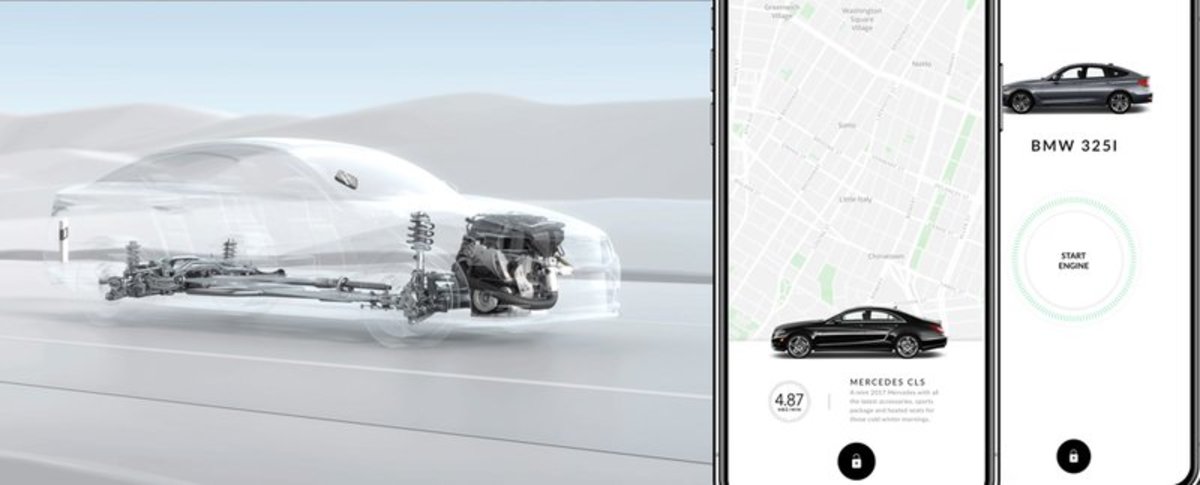
Like a car accelerating onto a highway on-ramp, the trajectory of blockchain technology continues to move at a rapid pace. Amid talk of crypto price volatility and initial coin offerings, a number of promising distributed applications continue to take shape, disrupting the landscape.
One novel initiative being curated in the nascent blockchain space involves the field of transportation and mobility, where owners of private vehicles can rent them out on a just-in-time basis without logistical concerns about keys or communication with users.
Enter Helbiz, a global enterprise that has its sights set on a summer launch in Los Angeles. Its main premise: A shared transportation model at a time when the cost of car ownership is declining rapidly and cars decrease in value.
A Transportation-Fueled Project
According to the data-gathering service Statistica, there will be an estimated 36 million car-sharing users worldwide by 2025. Tied to this trend is the increasing number of people opting for short-term car rentals over ownership. Much of this is tied to the desire to avoid insurance, car maintenance and other encumbrances associated with having a car. This rings particularly true in big cities and dense urban areas where traffic gridlock and congestion abound.
Another factor supporting Helbiz’s aim: According to parking expert Donald Shoup, a distinguished professor of urban planning at UCLA, the average car is parked and sits idle 95 percent of the time.
It’s these emerging trends that are driving Helbiz’s efforts to build a global mobility community that provides access to vehicles and other transportation services on an hourly, daily or weekly basis to maximize possible usage of any type of private vehicle independent of the owner’s schedule. Situated on the Ethereum blockchain and powered by ERC20 standard tokens known as “HBZ,” Helbiz seeks to become the desired payment transaction hub for blockchain-based transportation services throughout the world.
The infrastructure used to facilitate this seamless peer-to-peer car sharing is tied to iOS and Android applications on a blockchain, which allow users to rent any car on the platform, instantly unlocking it and turning it on with their phone without the need for any direct interaction with the owner.
The Helbiz app also serves as a connection point between car owners, insurance companies and other third parties that then, through smart contracts, pay these owners directly using HBZ.
At 23, Palella sold his agricultural company with over 1,000 employees to outside investors. Then, in 2015, he founded Palella Investment LTD and became one of the youngest hedge fund owners in the world, managing $250 million out of its headquarters in London.
In 2017, Salvatore founded SP1 and received, as one of the first funds to do so in the world, the authorization to trade cryptocurrency.
“Blockchain [technology] and smart contracts allow us to facilitate secure, real-time transacting tied to a single payment source,” said Palella. “This reduces transaction costs and greatly simplifies the renting process, reducing paper documentation and providing a great way to rent and share/send data.”
Palella noted that the Helbiz utility token exists for the core purpose of constructing a more complex and secure payment system and, as a separate application, for decentralized payments through its own second-layer protocols, which increase convenience and trust between sellers, limits cancellations and also captures and curates valuable user data. Most importantly, the Ethereum-based network allows it to be scalable, fostering its global use to pay for transportation without foreign transaction fees.
Currently, Helbiz is in the midst of an ambitious launch to include the following anticipated milestones, per its token website:
- Q1 2018: Initial coin offering (ICO) and listing on a top exchange
- Q2 2018: MVP of Helbiz marketplace and launch of operations in Los Angeles; integrating blockchain system for payments
- Q3 2018: Private Alpha allowing owners to share and sell data; Helbiz app expansion to a second city in the U.S.
- Q1 2019: Beta version of wallet, exchange and reward system; Helbiz app expansion in four additional cities in the U.S.
- Q2 2019: Version 1.0 of the Helbiz platform online
“Our grand vision is to give personal control back to the user through our blockchain-sharing economy model,” concluded Palella. “In five years, we hope to have a platform/app on millions of smart devices and digital locks in thousands of cars in every major city in the world. We see this as a major step in helping millions of people get around quickly and with ease.”
Note: Trading and investing in digital assets is speculative and can be high-risk. Based on the shifting business and regulatory environment of such a new industry, this content should not be considered investment or legal advice.










